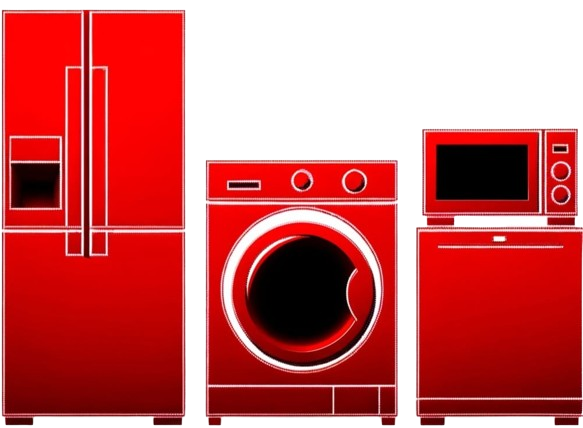June 05, 2024
Creation Date
Have you ever loaded your dishwasher, turned it on, and walked away only to return to blinking lights and unresolved chores? There you are, dishes unwashed, and your dishwasher displaying mysterious error codes like i20, i40, and iF0. It’s not just an inconvenience; it feels like a puzzle you’re unprepared to solve. This common scenario is one that many homeowners face and can disrupt both your routine and peace of mind. Fortunately, understanding what these codes mean is the first step towards solving the problem and getting back to your day. Let’s dive into what these error codes signify, how to troubleshoot them, and when it might be time to call in the experts.
What Do These Error Codes Mean?
Your dishwasher, a crucial home appliance, speaks to you through error codes. The codes i20, i40, and iF0 are specific to brands like Frigidaire and generally indicate issues related to water drainage. Here’s what each code signifies:
- i20: Problems with draining due to a clogged filter or drain line.
- i40: Similar issues, but often pointing more directly to a clog or obstruction in the plumbing connected to your dishwasher.
- iF0: An indication of a failed drain cycle, which might be caused by a severely blocked filter or an issue with the drain pump.
Breaking Down the Jargon
While the error codes might seem cryptic at first, they’re essentially your dishwasher’s way of asking for help. Each code pinpoints a specific issue—most often related to the appliance’s ability to properly drain water. This could be due to food particles, grease buildup, or other debris obstructing the flow of water.
Step-by-Step Troubleshooting Guide
Before you call a professional, there are several steps you can take to potentially resolve these errors yourself. Follow these guidelines:
- Check and Clean the Filters:
- Locate the main filter, which is typically at the bottom of the dishwasher.
- Remove and rinse it under running water. Use a soft brush to remove any stuck-on debris.
- For a thorough clean, soak the filter in warm, soapy water for about 10 minutes.
- Inspect the Drain Hose:
- Disconnect the drain hose from the back of your dishwasher and the sink drain.
- Use a straightened wire hanger to remove any obstructions in the hose.
- Check for kinks or bends in the hose that could impede water flow.
- Evaluate the Drain Pump:
- If cleaning the filter and hose doesn’t resolve the issue, the problem might lie with the drain pump.
- Listen for a humming sound when the dishwasher is supposed to drain. No sound could indicate a faulty pump.
- Ensure the pump is not blocked by debris.
- Reset the Dishwasher:
- Sometimes, simply resetting the dishwasher can clear error codes.
- Turn off the power to the dishwasher at your circuit breaker for about a minute, then turn it back on.
The Importance of Regular Maintenance
Preventive maintenance is key to extending the life of your dishwasher. Regularly cleaning the filters and ensuring the drain line is free from obstructions can help avoid these issues. Here are some tips to keep your dishwasher running smoothly:
- Regular Cleaning: Clean the filter and wipe down the interior of the dishwasher monthly.
- Rinse Dishes: Although modern dishwashers can handle some soiling, rinsing heavy food remnants off dishes before loading them can reduce the risk of clogs.
- Use the Right Detergent: Choose a dishwasher detergent suited for your model to prevent soap buildup.
Expert Insights
Many dishwasher issues can be resolved with simple at-home troubleshooting. Regular upkeep not only prevents problems but also enhances the efficiency and longevity of your appliance.
When to Call a Professional
While DIY troubleshooting is effective for many dishwasher issues, there are times when it’s best to call in a professional. Knowing when to seek expert help can save you time and prevent further damage to your appliance. Here are some situations where professional assistance is recommended:
- Persistent Error Codes: If you’ve followed all the troubleshooting steps and the error codes still persist, it could indicate a more complex issue within the dishwasher’s electronic system or internal components.
- Water Leakage: Any sign of water leakage around your dishwasher is a clear signal to stop using the appliance and call a professional. Water leaks can lead to serious damage to your home and may stem from a faulty installation or a severe malfunction.
- Electrical Issues: If you notice any irregularities with the dishwasher’s power supply, such as the circuit breaker tripping frequently or the control panel not responding, it’s safer to consult a professional. Electrical issues can pose significant risks.
- Noises During Operation: Unusual noises, like loud grinding, buzzing, or rattling sounds, can indicate mechanical failures. These sounds may suggest problems with the motor or pump that require professional diagnosis and repair.
- Complex Replacements: Replacing major components, such as the pump, motor, or electronic control panels, involves technical expertise and precision. Incorrect installation can lead to inefficiency and further damage.
Benefits of Professional Assistance
Calling a professional not only ensures safe and accurate repairs but also comes with several benefits:
- Expertise: Professionals have the specific knowledge and tools to diagnose complex issues quickly and accurately.
- Warranty and Safety: Appliance repair professionals offer a warranty on their work, giving you peace of mind. They also ensure that all repairs meet safety standards, protecting you and your property.
- Long-Term Savings: By addressing the problem effectively, professionals can extend the life of your dishwasher, preventing the need for costly replacements.













